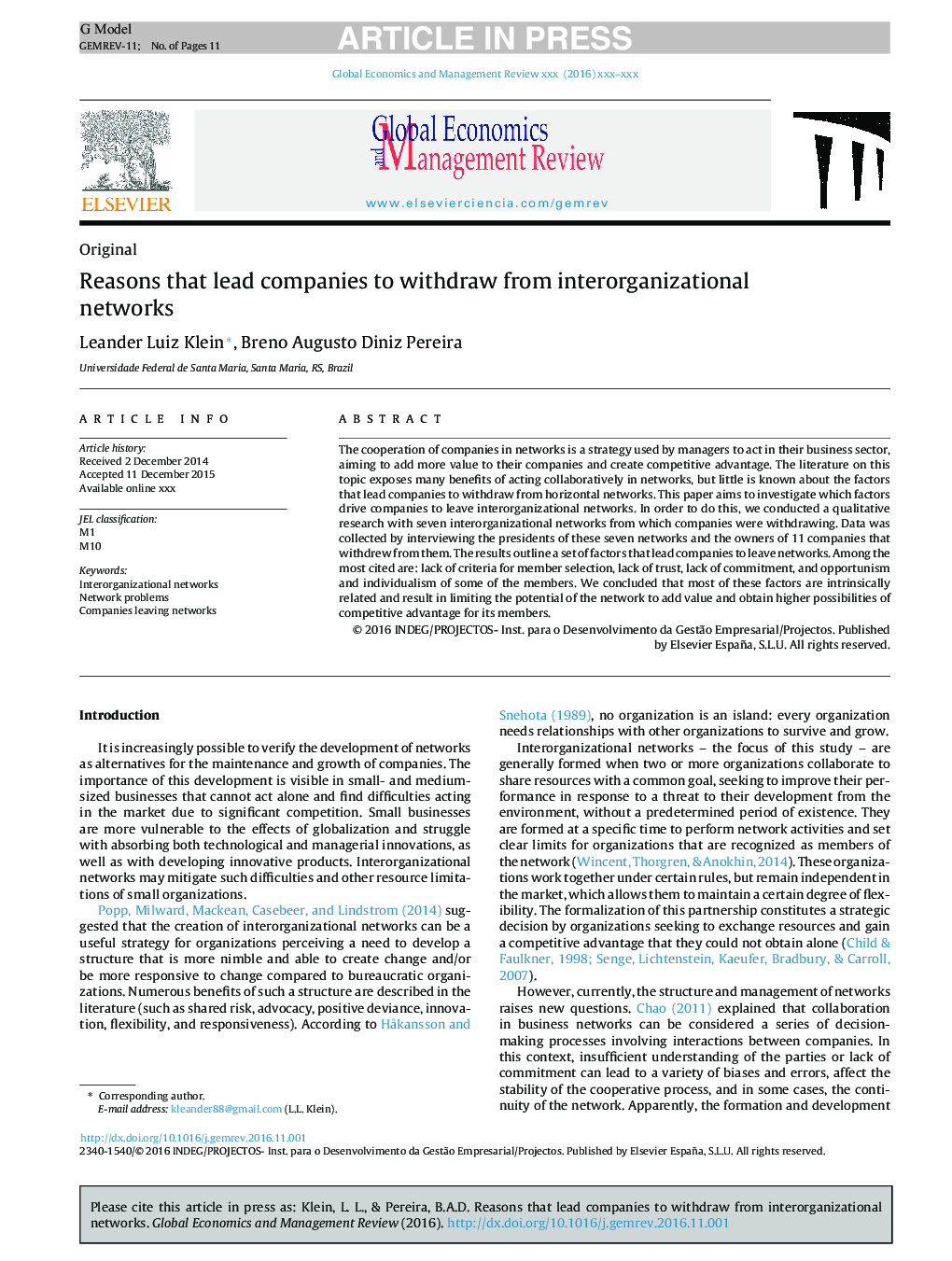| Article ID | Journal | Published Year | Pages | File Type |
|---|---|---|---|---|
| 7407861 | Global Economics and Management Review | 2016 | 11 Pages |
Abstract
The cooperation of companies in networks is a strategy used by managers to act in their business sector, aiming to add more value to their companies and create competitive advantage. The literature on this topic exposes many benefits of acting collaboratively in networks, but little is known about the factors that lead companies to withdraw from horizontal networks. This paper aims to investigate which factors drive companies to leave interorganizational networks. In order to do this, we conducted a qualitative research with seven interorganizational networks from which companies were withdrawing. Data was collected by interviewing the presidents of these seven networks and the owners of 11 companies that withdrew from them. The results outline a set of factors that lead companies to leave networks. Among the most cited are: lack of criteria for member selection, lack of trust, lack of commitment, and opportunism and individualism of some of the members. We concluded that most of these factors are intrinsically related and result in limiting the potential of the network to add value and obtain higher possibilities of competitive advantage for its members.
Related Topics
Social Sciences and Humanities
Economics, Econometrics and Finance
Economics, Econometrics and Finance (General)
Authors
Leander Luiz Klein, Breno Augusto Diniz Pereira,
